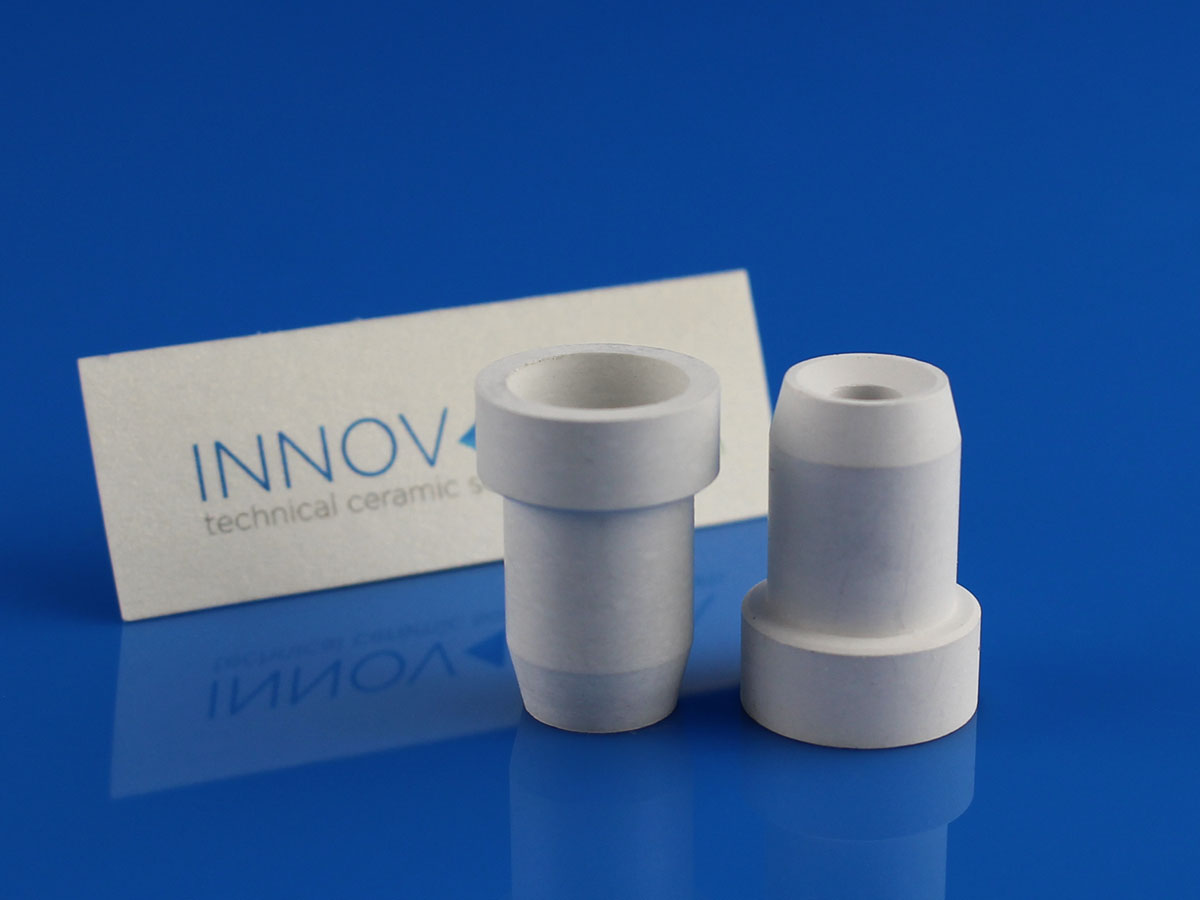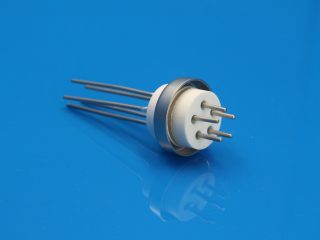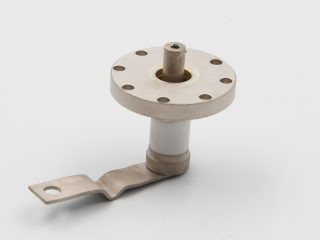
INNOVACERA has seven grades of Boron Nitride. BN99, BN+ZrO2, and BN+Zr+AL are often used for processing steels and nickel alloys. Usually, the material is machined as a nozzle used for powder metallurgy.
| Grade | BN997 | BN99 | BN-SI | BN-AL | BN-SIC | BN-ZR | BN-ALN |
| Main Composition | BN>99.7% | BN>99% | BN+AL+SI | BN+ZR+AL | BN+SIC | BN+ZRO2 | BN+ALN |
| Bonding Composition | B2O3 | B2O3 | Boron oxide silicon | Boron oxide aluminum | Boron oxide aluminum | B2O3 | Boron oxide aluminum |
| Density (g/cm3) | 1.6 | 2 | 2.2-2.3 | 2.25-2.35 | 2.4-2.5 | 2.8-2.9 | 2.8-2.9 |
| Room Temperature Electric Resistivity (Ω·cm) | >1014 | >1014 | >1013 | >1013 | >1012 | >1012 | >1013 |
| Max Using Temperature (°C) In Atmosphere In Inactive Gas In High Vacuum (Long Time) |
900 2100 1800 |
900 2100 1800 |
900 1750 1750 |
900 1750 1750 |
900 1800 1800 |
900 1800 1800 |
900 1750 1750 |
| Remark: The value is just for review, different using conditions will have a little difference. | |||||||
BN+ZrO2, one of the composite boron nitrides, has come to be recognized as an exceptional nozzle material as it satisfies all these conditions.
It is an advanced ceramic material with a high melting point, is tough enough to prevent cracks, has high thermal shock resistance, and is easy to machine. In addition, molten metals won’t wet the surface of boron nitride, which means that it is not easily clogged during the atomization process.
Under a high vacuum, boron nitride can resist up to 1,750 °C. A gas atmosphere can push this even further to 1,900 °C. This means that boron nitride will remain solid through the melting of most metals. Boron nitride has a very low thermal expansion. Together with the high heat conductivity, this ensures that the material has very high shock resistance. It can easily withstand the rapid gradations in temperature inside the atomizer. It does not break or crack under thermal stresses.




 Enquiry
Enquiry